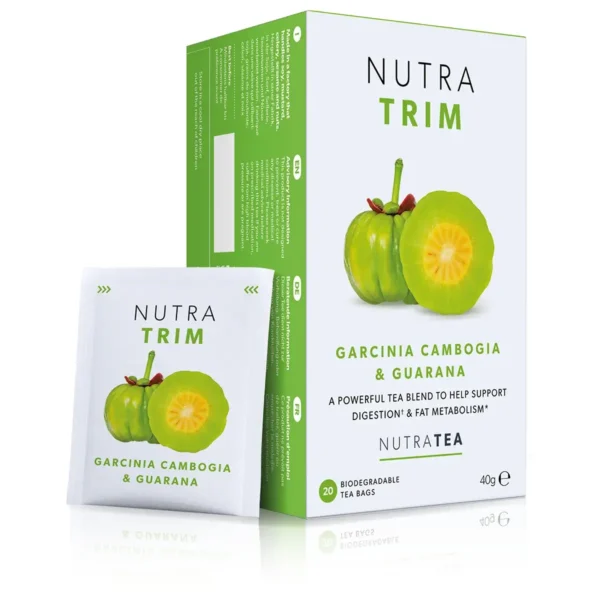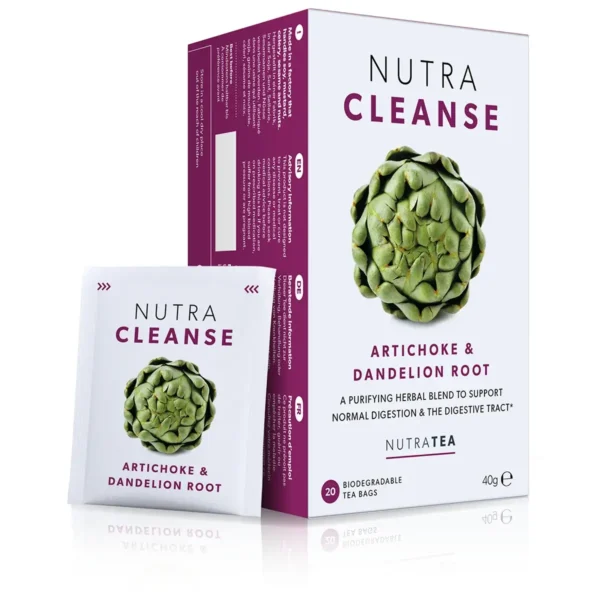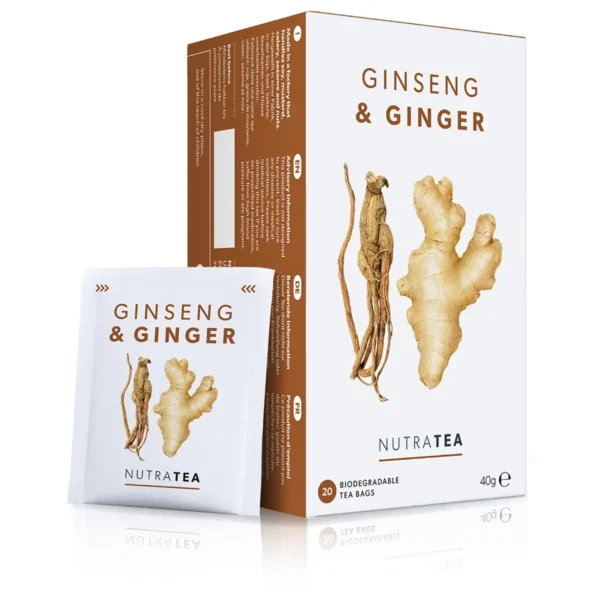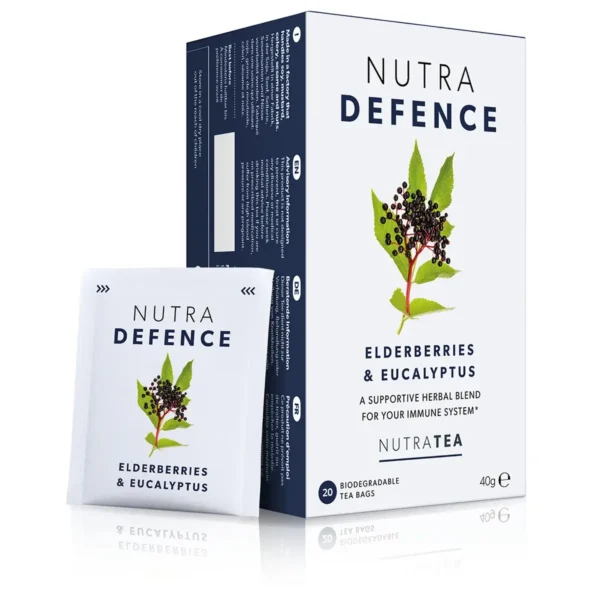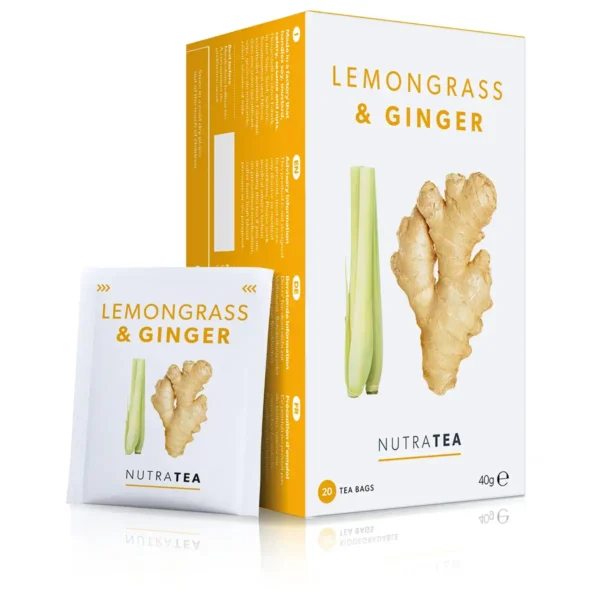SLEEP & RELAXATION IMMUNITY & ANTIOXIDANT VITALITY & INFLAMMATION ANTIOXIDANT & DIGESTION ENERGY & CLARITY WELLNESS & BLOOD SUGAR RESPIRATORY & IMMUNITY PREMIUM & FLAGSHIP BLENDS FLAGSHIP TEAS PREMIUM BLENDS PREMIUM & FLAGSHIP BLENDS PREMIUM & FLAGSHIP BLENDS PREMIUM BLENDS TEA MUGS, CADDY & BUDDY
What Are the Benefits of Ginger Tea?
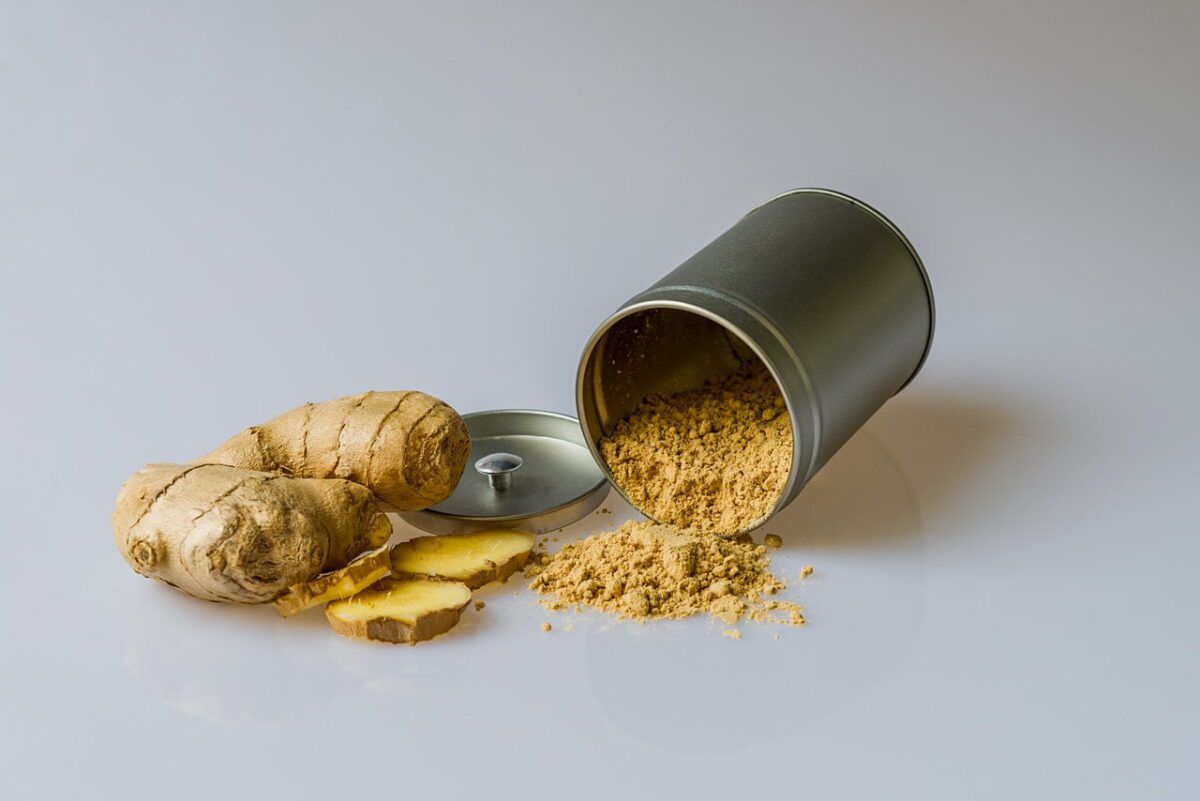
Prized for centuries as a remedy for everything from nausea to joint pain, ginger tea is a satisfyingly warming drink to include in your daily routine. Discover some of the benefits of ginger tea for our health.
—
Ginger has a long history of use, both in the kitchen and in the medicine cabinet. Its warming, slightly spicy taste makes it a delicious addition to both sweet and savoury cooking, but it is ginger’s benefits for our health that we want to focus on in this post.
Native to Asia, ginger is an important herb in both Ayurveda and Traditional Chinese Medicine. It has also been valued in Europe for hundreds of years.
Traditionally used to treat nausea, digestive complaints, and joint pain, ginger tea is also great for boosting the immune system and easing the symptoms of coughs and colds.
What Is Ginger Tea?
Ginger is part of the Zingiberaceae family and is closely related to other health-giving spices, including cardamom, galangal, and turmeric.
Although the part of the plant used in cooking and herbal medicine is often referred to as ginger root, it is in fact the rhizome – the bottom part of the stem.
Ginger comes in many forms. It can be used fresh or dried, turned into a powder, pickled, candied, or preserved. However, when we use ginger to make herbal tea, we typically use fresh or dried slices of the rhizome.
These are then steeped in hot water to release the flavour and infuse the water with the health-giving compounds from the ginger. The result is a comforting, warming, and slightly spicy drink with a distinctive aroma and taste.
The two main groups of bioactive compounds in ginger tea are gingerol and shogaol. These are responsible for many of the tea’s health benefits. Gingerols are found in fresh ginger and are transformed into shogaols when the ginger is dried.
Dried ginger also has more of a warming effect than fresh ginger, as well as a spicier flavour.
Ginger can be used on its own to make tea or can be combined with other herbs and spices. Ginger, honey, and lemon are a classic combination when you have a cold, but this herb lends itself well to a wide variety of other blends.
What Are the Benefits of Ginger Tea?
In Ayurveda, the ancient holistic healing system of India, ginger is prized as a universal medicine. It is said to increase agni (digestive fire), eliminate toxins, and boost blood circulation.
More recently, scientific studies have supported several of these claims. Ginger tea is still used around the world for a wide range of ailments.
Here are some of the ways drinking ginger tea may benefit your health.
1. Soothe the Digestion
Ginger is a well-known digestive tonic, helping to ease issues like indigestion and diarrhoea. However, it is particularly prized for its ability to soothe nausea and vomiting.
Often recommended as a remedy for morning sickness during pregnancy, ginger tea is also effective in relieving motion sickness and nausea from chemotherapy or surgery.
2. Boost the Immune System
As an antibacterial and antiviral, ginger can help our bodies ward off infections and diseases. It strengthens the immune system too, helping us stay healthy.
3. Natural Painkiller
Ginger tea has an analgesic effect, meaning it acts as a natural painkiller. Ginger has been found to be effective against all sorts of different types of pain, including menstrual pain, dental pain, and muscular pain.
4. Ease Sore Throats and Colds
You’ve probably heard already that ginger tea is a great home remedy when you have a cold. The warming nature of this herb promotes sweating and can help to bring down a fever. Ginger also helps to release mucus from the lungs and throat. Plus, its painkilling properties can ease a sore throat.
5. Combat Inflammation
Packed with antioxidants, ginger is a potent ally against inflammation. The gingerols and shogaols found in ginger tea help to reduce the production of cytokines – small proteins that signal to our immune systems that they should create an inflammatory response.
6. Reduce Blood Pressure and Support Heart Health
Making ginger a regular part of your diet might keep your heart healthier for longer. Studies show that this herb can reduce blood pressure. It also boosts blood circulation and helps to prevent blood clots. Ginger contains salicylates, which is the same blood-thinning chemical found in aspirin.
7. Alleviate Joint Pain
Ginger’s ability to relieve pain, reduce inflammation, and boost blood flow makes it an effective natural remedy for joint pain. It is thought to be especially good for treating the pain associated with osteoarthritis.
Does Ginger Tea Have Any Side Effects?
For most people, ginger tea is safe and won’t cause any side effects. However, some people report that drinking a lot of ginger tea can lead to heartburn or stomach upset – probably due to the spicy heat of this herb.
Other possible side effects are gas, bloating, or diarrhoea.
If you are already prone to heartburn or are particularly sensitive to spicy food, you might want to limit the amount of ginger tea you drink. Most experts recommend not drinking more than four cups a day anyway.
Always check with your doctor before taking a herbal remedy if you are on medication or have an underlying health condition. This is especially important if you have low blood pressure or are on blood thinners – ginger’s blood-thinning properties may not agree with you in these cases.
Generally, ginger tea is well-tolerated by most people. You’re unlikely to experience side effects unless you drink it in very large quantities.
What Is the Best Time of Day to Drink Ginger Tea?
You can drink ginger tea at any time of day. If you are pregnant, a cup first thing in the morning might help you get ahead of any nausea. Similarly, if you are prone to motion sickness, drinking a cup of ginger tea an hour or so before you travel might prevent issues.
Drinking ginger tea after a meal can help to encourage your digestive system and avoid gas or bloating later. Ginger can also be quite energising, so a cup in the afternoon might help to perk you up.
How to Make Ginger Tea
If you want to use fresh ginger to make your tea, cut a few slices and place them in a mug, then cover with hot water. Let it stand for 10 minutes before you drink.
Alternatively, you can enjoy ginger as part of a herbal tea blend. We use it in several of our teas.
For digestive health, we recommend trying either NutraCleanse or NutraTrim. If you want to boost your immune system, look for ginger in NutraDefence. Or you can find it in two of our flagship blends: Ginseng & Ginger and Lemongrass & Ginger.

